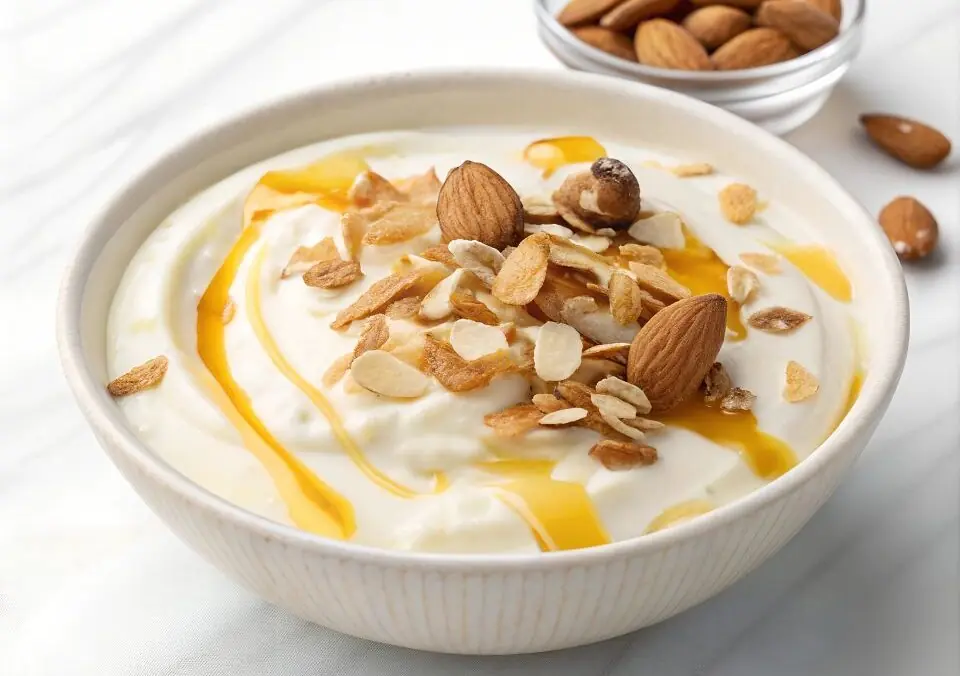Blog
Choose Your Yogurt Wisely

We all know how crucial it is to scrutinize the nutrition labels on the packaging of food products we purchase. This seemingly simple piece of information can provide a wealth of insight into the healthfulness of a product, offering a complete nutritional breakdown and highlighting any hidden or undesirable ingredients. In a world where health and wellness have gained increasing importance, being informed about what we consume has never been more vital.
While the adage “never judge a book by its cover” rings true in various contexts, it particularly pertains to food products. Often, items marketed as healthy may not always live up to their claims. One such item is yogurt, frequently hailed as an excellent source of gut-healthy probiotics. This can indeed be true, but it’s only the case for specific types of yogurt. Registered dietitian nutritionist Kelly Plowe provides essential guidelines for selecting yogurts that ensure you’re getting a nutritious, probiotic-rich product.
The Yogurt Landscape
The yogurt aisle in any grocery store might leave you feeling overwhelmed. There’s no shortage of options, from plain to flavored variations, Greek to Icelandic, and dairy to plant-based alternatives. Navigating this vast array of choices can be challenging, but focusing on two primary criteria can simplify the decision-making process: sugar content and probiotic content.
Sugar Content: The Hidden Culprit
Many yogurt varieties are loaded with added sugars, which can significantly detract from their health benefits. Common offenders include pre-flavored yogurts and bottled yogurt drinks that, although often delicious, can be detrimental to your health goals. Research from organizations like the American Heart Association emphasizes the need to limit added sugars in our diets, as they can contribute to various health issues, including obesity and heart disease.
Interestingly, some yogurts advertised as sugar-free, low-sugar, or light do not provide the relief you might expect. Instead, they are frequently packed with artificial sweeteners, which, as studies have indicated, may not be beneficial for your gut health. It’s advisable to choose plain, unsweetened yogurts to obtain maximum nutritional benefits. If the tartness of plain yogurt doesn’t appeal to you, try enhancing its flavor with a drizzle of honey or fresh fruit. This approach adds natural sweetness and can elevate the health profile of your snack.

Probiotic Content: The Good Bacteria
One of the most appealing aspects of yogurt is its probiotic content. Probiotics are the gut-friendly bacteria that come from the yogurt fermentation process. According to the Food and Drug Administration (FDA), a product must contain at least two specific strains of bacteria—Lactobacillus bulgaricus and Streptococcus thermophilus—to be labeled as yogurt. However, many beneficial yogurts go beyond these minimum requirements by offering a variety of additional probiotic strains.
When shopping for yogurt, it’s important to examine the labels carefully. Look for the number of CFUs (colony-forming units) present in each serving. The more probiotics a yogurt contains, the better it is for your digestive health. Studies show that higher probiotic levels can lead to improved gut health, digestive regularity, and even enhanced immune response—making yogurt a potent ally in your wellness journey.
Yogurt and Your Health
Besides being a source of probiotics, yogurt can offer numerous health benefits. It can be rich in healthy fats, protein, and essential nutrients. Incorporating yogurt into your diet can support bone health due to its high calcium and vitamin D content, which are vital for maintaining strong bones. According to an article published by the National Institutes of Health, calcium is crucial in preventing osteoporosis and is necessary for proper muscle function.
Furthermore, yogurt can be an excellent snack for those looking to manage their weight. The protein in yogurt can help you feel full longer, reducing the likelihood of overeating or opting for unhealthy snacks between meals. Additionally, the presence of probiotics may aid in regulating appetite and metabolism, as indicated by various research studies, including one published in the journal Obesity Reviews.
Choosing the Right Yogurt
When you decide to purchase yogurt, consider even more factors beyond just sugar and probiotics. Here’s how to ensure you’re making a wise choice:
1. Check Ingredient Lists:
Be vigilant about what’s inside the yogurt. The shorter the ingredient list, the better. Ideally, yogurt should contain just milk and live cultures. If you see additives or artificial ingredients, it might be best to put that product back on the shelf.
2. Opt for Full-Fat Options:
Studies such as one from the American Journal of Clinical Nutrition suggest that full-fat dairy can provide health benefits and may not contribute to weight gain as previously thought. Full-fat yogurt can offer more flavor and satiety, making it a preferred choice for many.
3. Look for Grass-Fed Dairy:
If you prefer dairy yogurt, consider options made from grass-fed milk. These yogurts often contain higher levels of beneficial nutrients, including omega-3 fatty acids and vitamin K2, compared to those made from grain-fed dairy.
Creative Ways to Enjoy Yogurt
Yogurt is far more versatile than you might think. Below are some creative ways to incorporate it into your meals and snacks while boosting their nutritional value:
1. Breakfast Smoothie:
Blend plain yogurt with fresh fruit, spinach, and a spoonful of nut butter for a nutritious breakfast smoothie that keeps you full for hours.
2. Yogurt Parfait:
Layer yogurt with granola and a mix of seasonal fruit for a delicious parfait. This makes for a pretty presentation and is perfect for brunch or a snack.
3. Savory Dishes:
Use yogurt as a base for dressings, dips, or sauces. Combine it with herbs and spices for a refreshing salad dressing or as a dip for veggies.
4. Baking Substitute:
Yogurt can also be a great substitute for sour cream or oil in baking recipes, lending moisture and flavor to your baked goods.
5. Frozen Treat:
Freeze yogurt in popsicle molds for a healthy treat on a hot day. You can blend in fruits or even a splash of juice for added flavor.
The Bottom Line
Yogurt can be a fantastic addition to a balanced and healthy diet, provided you choose wisely. Paying close attention to sugar and probiotic content can guide you toward making the right choices while navigating the overwhelming array of yogurt options available today. Remember that not all yogurts are created equal—plain, unsweetened varieties fortified with beneficial probiotics are your best bet for improving gut health and enhancing overall nutrition.
As the saying goes, knowledge is power. Armed with this information, the next time you find yourself in the dairy aisle, you’ll be ready to make informed choices that align with your health goals. So keep these tips in mind during your grocery shopping trips to ensure you’re not only enjoying delicious yogurt but also reaping its numerous health benefits!
For more health-related articles, check out the Fill Your Plate blog. Embrace the journey toward healthier choices and feel empowered to make the best decisions for your well-being. Happy yogurt hunting!
By Heide Kennedy, Arizona Farm Bureau Communications Intern


















